- Home
- Index
-
My Books
- Book List
- Writing/Reading Articles Listing
-
My Short Stories
- What God Lost
- What God Lost — Part 2
- When Hope Was Lost
- A Battle in the Heavens
- To Live Forever
- Finding Peace
- Empty Hands
- From Fire and Thunder to Love and Submission
- The Coming One
- Forgiveness Made Possible
- The Innkeeper's Wife
- Do You Have The Right Words?
- The Lamb of God As Told by a Scribe
- What Love Is This?
- When Heaven Came Down
- Family
- Faith

Are Your Children Safe?
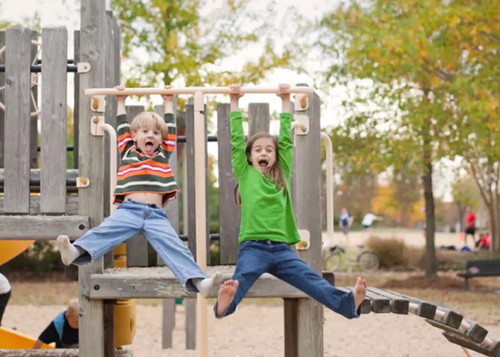
We have heard much in the news about creating “safe places” for our children.
How is a parent suppose to keep their children safe?
What is safe?
(Bear with me as I give you the complete definition, it has great significance as you will see.)
Merriam-Webster defines safe as:
1. free from harm or risk : unhurt
2. a. secure from threat of danger, harm, or loss
b. successful at getting to a base in baseball without being put out
3. affording safety or security from danger, risk, or difficulty
4. obsolete, of mental or moral faculties: healthy, sound
5. a. not threatening danger: harmless
b. unlikely to produce controversy or contradiction
6. a. not likely to take risks: cautious
b. trustworthy, reliable
Is that what we want? To create a world for our children where there is no harm, danger, or risk?
Is that even possible?
Is that good?
In our quest to create safe zones, we have equated danger and risks with evil. Injury and pain with bad.
I am not advocating removing common sense and suggesting you push your child in front of a truck and consider it good. You would not be at my house too long before you hear me calling to someone to put on a helmet if he insists on flying down the cliff in a wagon.
I’ve also given more restrictions to some when common-sense and survival skills seem to be lacking.
I’ve called my husband at work asking, “This is what the boys are doing. Should I be worried?” Like jumping off a shed roof. Racing down the cliff with their skateboards. Climbing beyond sight in trees. Riding a bull. Swinging upside-down by a rope. The list seems endless.
Most of the time, he’ll say, “They’re fine.” I return inside and allow them to their “boy adventures.” (Of course, not without worry and prayer.)
Some may even consider me a helicopter parent when it comes to supervising them with people around. (More about that in another article.)
We see the demand for child safety resulting from over-protective parents who want to shelter their children from the real world. I see the parallel with what C.S. Lewis said in The Four Loves:
To love at all is to be vulnerable. Love anything and your heart will be wrung and possibly broken. If you want to make sure of keeping it intact you must give it to no one, not even an animal. Wrap it carefully round with hobbies and little luxuries; avoid all entanglements. Lock it up safe in the casket or coffin of your selfishness. But in that casket, safe, dark, motionless, airless, it will change. It will not be broken; it will become unbreakable, impenetrable, irredeemable. To love is to be vulnerable.
In our zeal to keep our children “safe,” we put them in a box, under the guise of protecting them. The four walls constrict and choke them. When they do manage to climb out, we expect them to act like adults, but they fail. Why? Because they don’t know the real world. They couldn’t learn from their perfect environment. Their “safeness” kept them from developing. Their lack of trials made them weak.
It’s the “unsafeness” of our world that allow boys to develop into men.
We’ve been asked how we can send our boys to a secular university. “Don’t you fear the evil?”
You bet I do. I don’t like evil. It’s greater than when we were there.
But I also know God conquered evil. And He hasn’t deserted my boys when they need Him most.
We’ve trained our boys, not so they can stay isolated from the world, but to be ready for the world. Jesus calls us to “be in the world, but not of it.” Jesus didn’t stay away from the prostitutes and sinners. He lived among them. Their evil didn’t influence him. He showed them a better way.
He calls us to tell a lost, unsafe world, that there is hope and safety with God.
But nor do I throw my boys out into the world without training. We train our boys in truth, so they can recognize falsehoods.
How does the government train its men to identify counterfeit money? They know “real” money, so when anything false comes along, they see it for what it is.
Same with truth. When you know truth, you see wrong.
Someone told me she joined a community with rules that kept them separate from the world “to keep her children safe.”
I warned, “You can’t escape the effects of evil. You’re running from evil, but evil is inside you.” She has since learned the hurt she was trying to avoid has followed her. She now even rejects the “safe” community.
The answer isn’t a safe environment.
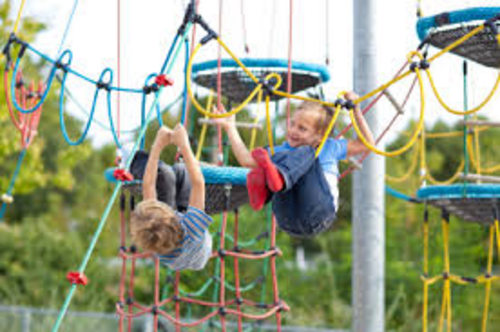
Let’s see with playgrounds.
According to the National Safety Council,
Forty years ago, playgrounds were downright scary. Everything was made of metal. The slides were so hot they'd burn the skin right off your thighs. Kids would go flying off of those spinning contraptions, or perch precariously 10 feet in the air on monkey bars with rock-hard earth or concrete underneath.
They don't make them like they used to, and that's a good thing. But a recent study by the Centers for Disease Control and Prevention finds that emergency departments still see more than 20,000 children ages 14 and younger for playground-related traumatic brain injury each year…Nearly 80 percent of playground injuries are caused by falls. Some of the top equipment associated with injuries are climbers, swings, slides and overhead ladders, according to the National Program for Playground Safety….
Equipment not recommended for public playgrounds: One example is monkey bars. The number of injuries caused by monkey bars is so significant many experts recommend they be removed from all playgrounds.
Wow! How did we, the older generation, live through our childhood?
Most accidents happen at home. Does that mean we eliminate our homes?
Such absurdity seems prevalent in our quest to make things safe.
Even if we could make the world safe, should we?
Not all risks are evil. Not all loss is bad.
We let go of good things, so we can choose the best.
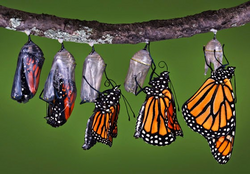
If a butterfly doesn’t struggle to leave its cocoon, its wings aren’t strong enough to fly. It dies.
Is that what we are doing to our “safe” children?
Let’s evaluate our restrictions and put some restrictions on our restrictions.
Resent research suggests too many restrictions on children’s play hinders development.
By preventing all injury, we eliminate risk. But by eliminating risks, we obstruct children’s development, encourage “obesity, mental health concerns, lack of independence, and a decrease in learning, perception, and judgment skills.”
Findings from psychology, sociology, landscape architecture and leisure studies question the premise that child safety is the supreme importance.
By seeking to eliminate all injury in play by making things safe, studies have shown over time, children’s free play has declined. Outdoor free play is substituted with organized sports, music lessons or sedentary activities. Children today are inactive 7.6 hours a day, tripling in the last 30 years childhood obesity in the U.S.
One review documents the decline of outdoor play time with the rise of psychopathology in children. They correlate reduced free play time with lack of personal and emotional control, increased social isolation, and reduced happiness. Some studies even attributed a child’s ability to cope with fear, and increased anxiety disorders and depression with the lack of dangerous, risk-taking play.
In a study in U.K. of 1,011 parents, 43% believed children under 14 years should not be allowed outside unsupervised, half of those parents felt the age should be raised to 16 years of age.
By safe-guarding our children, we have placed them in greater harm from other environments (traffic due to carting them around to organized sports). Safe children have created a “backseat generation” with little free play time.
What do these back-seat participators learn? One study compared middle class girls from U.K. with those in less affluent backgrounds. They knew less about their neighborhoods, which impairs their ability to negotiate public space safely. Children don’t develop survival skills without risk.
One study concluded: the goal should not be to eliminate all risks, but to control risk, and teach how best to manage risks.
When playgrounds are “safe,” children aren’t challenged or interested. They played elsewhere. In a survey of 1,973 children 11 to 14 years olds, more than 40% regularly played in wastelands, building sites, underpasses, rivers, abandoned buildings and quarries.
When children must use the playground, they used the equipment in unsafe ways to create a challenge. Children seem aware of the dangers and adjusted according to their abilities, skills, and to those around them. Clumsiness and carelessness resulted in injuries, not using the actual equipment.
In spite of due diligence on the parents’ part to provide a “safe” place to play, accidents happen.
But accidents aren’t surprises to God.
I could keep my boys from experiencing life, so they can be safe.
In that box of safety, they would die of boredom.
People ask me, “How can you live with poisonous snakes?”
I respond, “I know what a snake will do. In the city, I don’t know what an evil man will do.”
But more than that, we are where God has put us.
Early in our marriage, we lived in LA where helicopters’ spotlights searched our backyard for run-away felons. My husband told me, “Don’t look out the window lest a stray bullet kill you.”
Did I fear? Not really. Concerned? A bit.
When God puts you somewhere, God gives safety. And peace.
Parents try to create peace and safety by their surroundings.
Our surroundings should make us depend upon God Who gives us peace and safety.
If God called us to a wild African tribe, we would be safe. Nothing could harm us that God didn’t sanction.
He’s in control, isn’t He?
In fact, we wouldn’t be safe if we stayed home, disobedying God.
Remember Jonah? He ran from God and got swallowed by a big fish. When he finally obeyed, God had a gourd offer him shade.
Safety doesn’t come from where you are, but from Whose you are.
That doesn’t mean, nothing bad will happen to us or no accidents will come to us. (I’ve discussed this extensively, see How Suffering Shows God's Love).
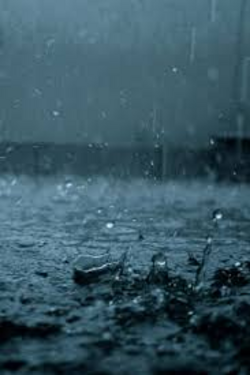
As parents, we must give our children to the One Who gives peace in the storm.
We don’t stop the storm.
Nor do we don’t take our children out of the storm. We provide jackets (preparation) for their storms.
The storm brings lessons only a storm can bring.
Trust God with your children. He knows what they need.
And He brings them safety through the storm.
Sources:
http://www.nsc.org/learn/safety-knowledge/Pages/news-and-resources-playground-safety.aspx
https://www.ncbi.nlm.nih.gov/pmc/articles/PMC3499858/
Displaying 1 comment
I write about what matters...to you---
women, wives and moms---
about your family, faith and future.
I write about what's hard, what helps and what heals.
I show you how it's done. And not done.
I hold your hand as you find what matters to the Savior.
And let go of those things that mattered to you, but not to Him.
I write about what matters...to Him.
Sonya Contreras
Motherhood
Find other articles about motherhood
here:
Memories of a Hero Mom
They Called Her Gammy
Are You Tired of the Same, Old Thing?
Who's Responsible for the Children
The Battle for Our Children
Dear Master of Hands
Close to Home
Reflections from a Mom
Just the Mother-In-Law
A Mom Who Knew Her Job
Letting Go of my Fourth Son
Making a House a Home
How Do I Pray?
Picking up Acorns
Changed by God
Last Times
Are You a Failure?
What To Do Now?
Are You Tired of the Same Old Thing?
What's in a Book, Anyway?
Marijuana, Mental Illness, and Violence
Confessions of a Desperate Mom
You Are Not Alone
A Wedding Remembered
Sunday Morning Excuses—Is It Worth It?
Stages of Parental Control
Homeschooling Myths Debunked
Seasons
Do You Know the Word?
Wake Up! Strengthen What Remains
Is Jezebel in Your Midst?
Are You Tired of Being a Mom?
A Day in a Mom's Life
What Talents Are You Wasting as a Mom?
What Have I Learned as a Mom?
What's in It for Me?
Adoption—The Heart of God
The Making of a Man part 4
The Making of a Man part 3
The Making of a Man part 2
The Making of a Man
Are Your Children Safe from Bullying?
Are Your Children Safe from Child-napping and Sexual Abuse?
Are Your Children Safe?
The Value of Remembering
Marjorie Rutherford: A Testimony to God's Faithfulness
Marjorie Conrad: A Testimony to God's Trustworthiness
Starting School Again
Dependence or Independence?
Breast Milk Made Especially for Your Child
What Is Essential for Babies?
My Space, My Time, My Needs
What's a Mom?
A Mother's Influence
A Mother of Boys
Prepare for the Lord: Thoughts for Moms from Exodus 19
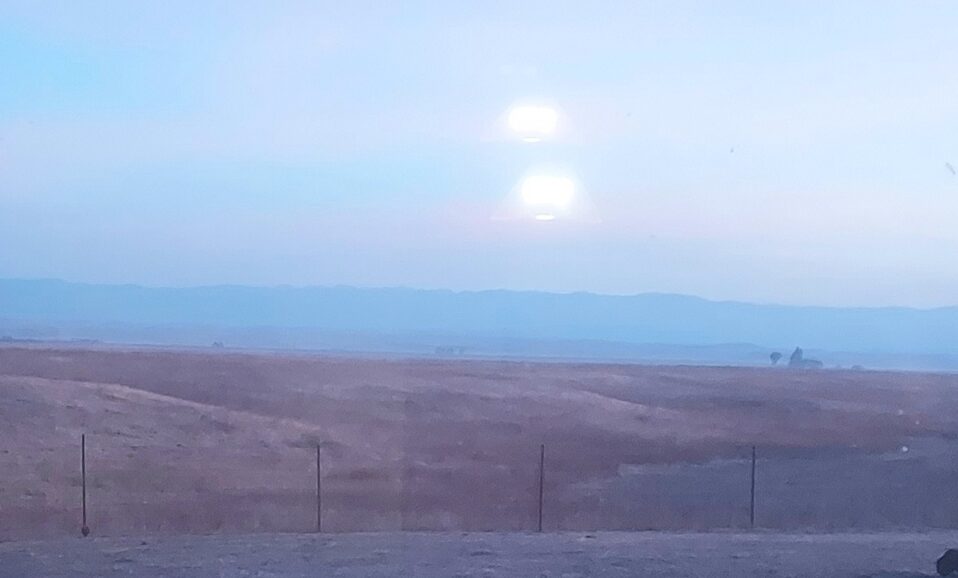
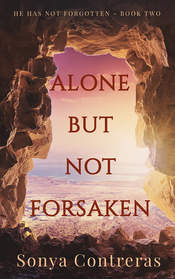
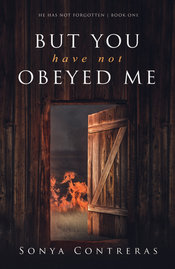
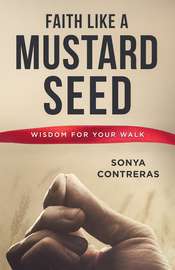
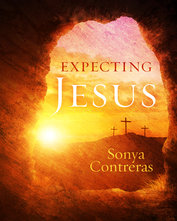


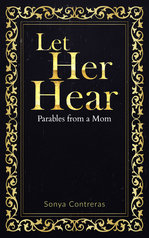
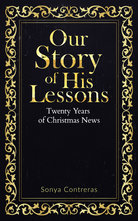
Great article, much needed in this society. We were never very protective and think it helped the kids. Steve always said let them make mistakes when they are little and can't hurt themselves too badly, then they learn to be careful. But not paranoid like some kids today. Now I'm practicing this on the grand kids.